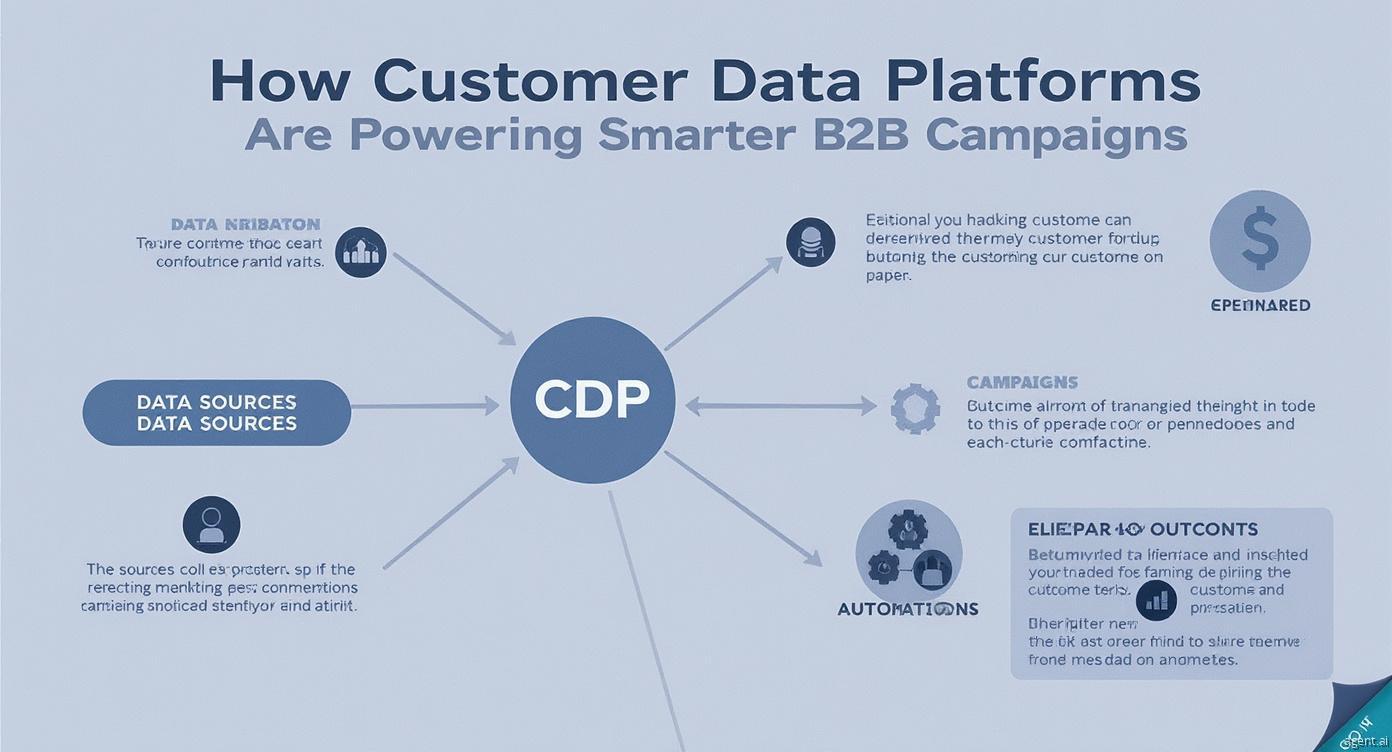How Customer Data Platforms Are Powering Smarter B2B Campaigns

In today’s data-centric marketing environment, Customer Data Platforms (CDPs) are emerging as the backbone of effective B2B campaigns. These platforms are redefining how businesses collect, unify, and activate customer data to create more meaningful, targeted, and profitable marketing strategies. As B2B buyers demand more personalized experiences, companies that leverage CDPs gain a critical competitive edge.
Understanding the Role of Customer Data Platforms
A Customer Data Platform is a centralized system that consolidates data from various touchpoints website visits, social media interactions, CRM systems, email campaigns, and more into a single customer view. Unlike traditional data management tools, CDPs enable real-time data activation, meaning marketers can use this information immediately to deliver relevant experiences.
For B2B organizations, which often deal with complex buyer journeys and long sales cycles, CDPs simplify how data flows between marketing, sales, and customer success teams. This leads to better coordination and more consistent customer engagement.
Why CDPs Are Essential in Modern B2B Marketing
Today’s B2B buyers expect the same level of personalization they experience as consumers. Generic messaging and disconnected communication can push them toward competitors. CDPs eliminate these challenges by:
-
Creating unified profiles across devices and channels.
-
Enabling segmentation based on firmographics, behavior, and engagement.
-
Providing analytics that predict buying intent.
These capabilities allow marketing teams to deliver targeted, timely, and relevant messages that drive action.
From Data Chaos to Clarity
Most businesses are swimming in data, but much of it is scattered across systems. Without proper integration, valuable insights remain locked away. CDPs turn fragmented data into actionable intelligence.
Imagine your sales team knows which company engaged with your LinkedIn ad, downloaded a whitepaper, and attended a webinar all connected under one profile. That’s the power of a CDP: turning scattered data points into a clear story that drives strategy.
Driving Account-Based Marketing (ABM) Success
CDPs are a perfect match for Account-Based Marketing. They help identify high-value accounts, understand stakeholder behavior, and deliver hyper-personalized content.
By integrating intent data and engagement analytics, CDPs ensure every touchpoint emails, ads, and outreach is informed by customer actions and preferences. This alignment strengthens ABM campaigns and leads to higher conversion rates.
Enhancing Lead Scoring and Nurturing
Lead scoring often struggles with incomplete or outdated data. CDPs solve this by maintaining continuously updated profiles. They track engagement in real time, so sales teams always know which prospects are warmest.
This dynamic approach allows for more precise nurturing. Instead of following rigid drip campaigns, marketers can deliver personalized follow-ups based on actual behavior drastically improving lead-to-customer conversion rates.
Data-Driven Decision Making
One of the greatest benefits of CDPs is their ability to empower marketers with deep insights. Dashboards and analytics tools provide a comprehensive view of how campaigns perform across channels.
Teams can identify which content resonates most, what channels deliver the best ROI, and how customer journeys progress. This data-driven approach allows marketers to make smarter, faster, and more confident decisions.
Ensuring Data Compliance and Security
With data privacy regulations tightening worldwide, businesses must ensure they handle data responsibly. CDPs help maintain GDPR and CCPA compliance by centralizing consent management and providing transparency into data usage.
They also enable the secure handling of first-party data, reducing dependence on third-party cookies and ensuring long-term marketing sustainability.
Integration with Existing Tools
A CDP’s true power lies in its ability to integrate seamlessly with existing marketing stacks. From CRMs like Salesforce to automation tools like HubSpot, CDPs act as a connective layer that ensures all systems share accurate and up-to-date information.
This integration streamlines workflows and improves collaboration between marketing and sales teams, leading to faster follow-ups and more personalized outreach.
Future-Proofing B2B Marketing
As AI and predictive analytics become more embedded in CDPs, the future of B2B marketing will be increasingly automated and insight-driven. Businesses will no longer rely on manual data analysis but will instead use machine learning to forecast buyer intent and suggest next-best actions.
Those who invest in CDPs today are not just solving current challenges they’re positioning themselves for a future where data intelligence drives every decision.
Customer Data Platforms are transforming B2B marketing by bridging the gap between data and decision-making. They unify customer insights, power personalization, and enable smarter, faster, and more efficient campaigns.
In a market where precision and timing matter most, CDPs help businesses deliver the right message to the right person at the right time every time. Embracing this technology is no longer optional; it’s the foundation of intelligent, future-ready B2B marketing.
- Art
- Causes
- Crafts
- Dance
- Drinks
- Film
- Fitness
- Food
- Jeux
- Gardening
- Health
- Domicile
- Literature
- Music
- Networking
- Autre
- Party
- Religion
- Shopping
- Sports
- Theater
- Wellness


